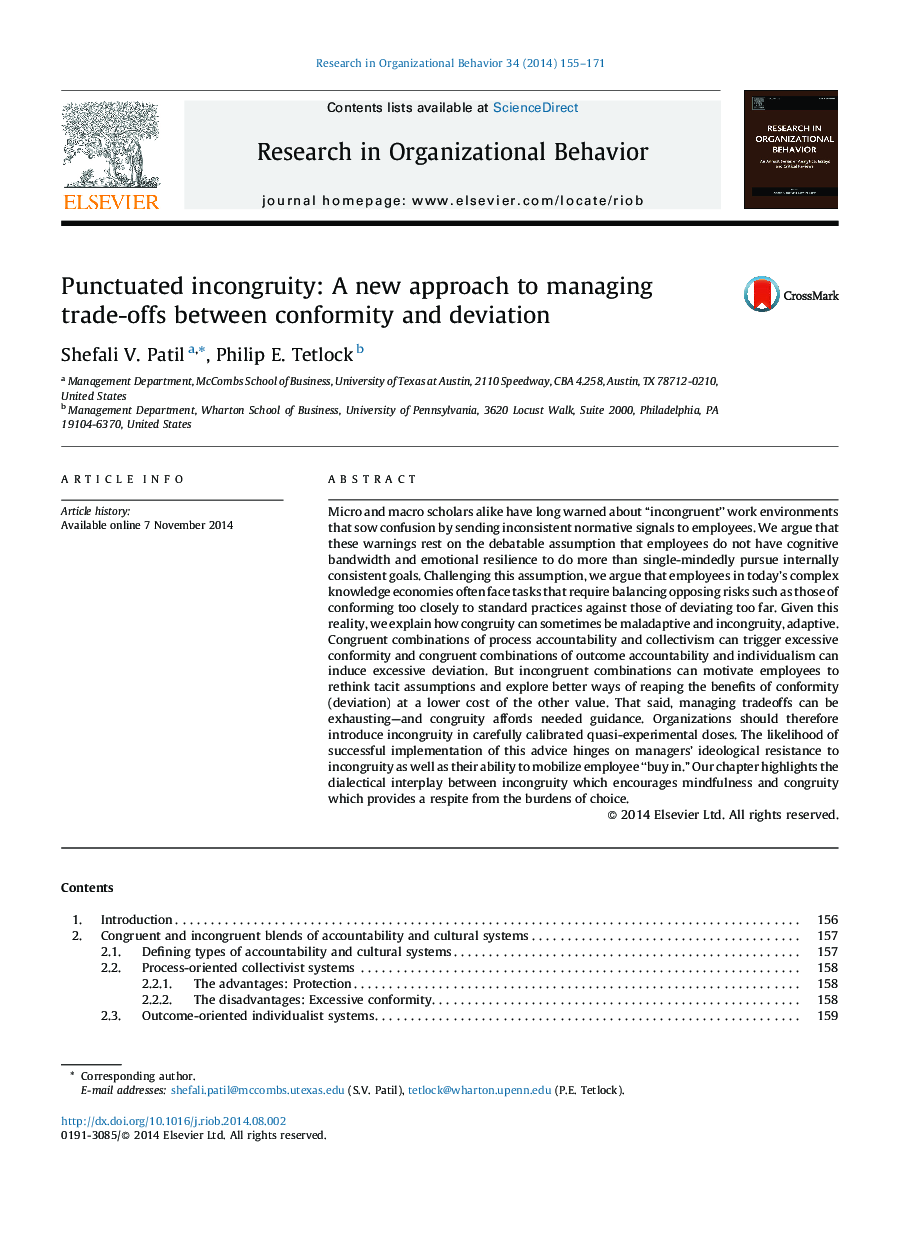| کد مقاله | کد نشریه | سال انتشار | مقاله انگلیسی | نسخه تمام متن |
|---|---|---|---|---|
| 7254311 | 1472198 | 2014 | 17 صفحه PDF | دانلود رایگان |
عنوان انگلیسی مقاله ISI
Punctuated incongruity: A new approach to managing trade-offs between conformity and deviation
ترجمه فارسی عنوان
ناسازگاری متقاطع: یک رویکرد جدید برای مدیریت اختلاف بین انطباق و انحراف
دانلود مقاله + سفارش ترجمه
دانلود مقاله ISI انگلیسی
رایگان برای ایرانیان
موضوعات مرتبط
علوم انسانی و اجتماعی
مدیریت، کسب و کار و حسابداری
بازاریابی و مدیریت بازار
چکیده انگلیسی
Micro and macro scholars alike have long warned about “incongruent” work environments that sow confusion by sending inconsistent normative signals to employees. We argue that these warnings rest on the debatable assumption that employees do not have cognitive bandwidth and emotional resilience to do more than single-mindedly pursue internally consistent goals. Challenging this assumption, we argue that employees in today's complex knowledge economies often face tasks that require balancing opposing risks such as those of conforming too closely to standard practices against those of deviating too far. Given this reality, we explain how congruity can sometimes be maladaptive and incongruity, adaptive. Congruent combinations of process accountability and collectivism can trigger excessive conformity and congruent combinations of outcome accountability and individualism can induce excessive deviation. But incongruent combinations can motivate employees to rethink tacit assumptions and explore better ways of reaping the benefits of conformity (deviation) at a lower cost of the other value. That said, managing tradeoffs can be exhausting-and congruity affords needed guidance. Organizations should therefore introduce incongruity in carefully calibrated quasi-experimental doses. The likelihood of successful implementation of this advice hinges on managers' ideological resistance to incongruity as well as their ability to mobilize employee “buy in.” Our chapter highlights the dialectical interplay between incongruity which encourages mindfulness and congruity which provides a respite from the burdens of choice.
ناشر
Database: Elsevier - ScienceDirect (ساینس دایرکت)
Journal: Research in Organizational Behavior - Volume 34, 2014, Pages 155-171
Journal: Research in Organizational Behavior - Volume 34, 2014, Pages 155-171
نویسندگان
Shefali V. Patil, Philip E. Tetlock,
